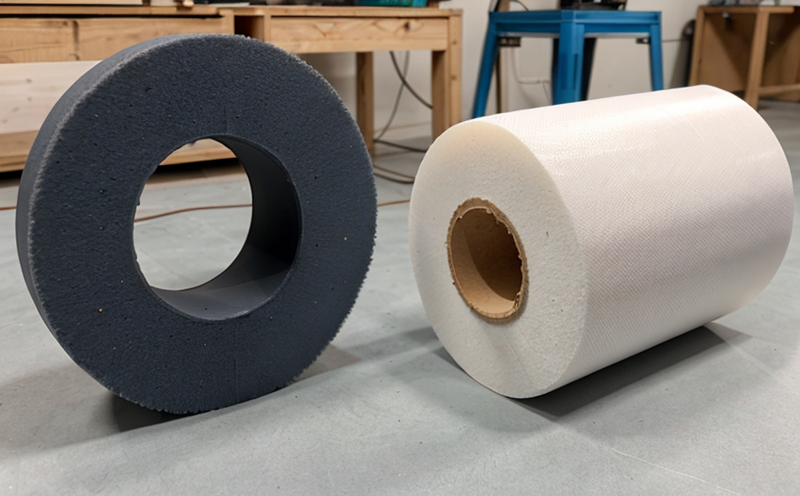NF EN 312 Formaldehyde Release Testing of Furniture Wood Panels
The NF EN 312 standard is a crucial benchmark in the furniture industry, ensuring that wood panels used in furniture products do not release harmful levels of formaldehyde into the environment. This testing procedure evaluates the formaldehyde emission from particleboards and medium-density fiberboards (MDF) commonly found in various furniture components.
Formaldehyde can be hazardous to human health if present at high concentrations, thus compliance with this standard is essential for manufacturers aiming to produce safe and sustainable products. The test aims to simulate real-world conditions where materials are exposed to different environmental factors such as humidity and temperature variations.
The procedure involves placing a sample of the wood panel into a chamber under controlled temperature and relative humidity levels. Over time, formaldehyde diffuses from the material into the air within the sealed chamber. The concentration of released formaldehyde is then measured at specific intervals using a gas chromatograph (GC) or similar analytical method.
The results are compared against predefined limits specified in NF EN 312 to determine whether the product passes or fails the test. Compliance with this standard not only ensures safety but also enhances brand reputation, meeting consumer expectations for quality and environmental responsibility.
| Applied Standards |
|---|
| NF EN 312:2018 – Determination of formaldehyde release from particleboards and medium-density fiberboards in the form of free gaseous formaldehyde (HCHO) under equilibrium conditions at 40 °C. |
Understanding these parameters helps quality managers, compliance officers, R&D engineers, and procurement professionals make informed decisions about material selection and production processes. By adhering to NF EN 312 standards, furniture manufacturers can ensure their products meet stringent international safety requirements while contributing positively towards environmental protection.
Applied Standards
The NF EN 312 standard is widely recognized for its rigorous approach to evaluating formaldehyde emissions from wood panels. It specifies the methodology for measuring free gaseous formaldehyde (HCHO) released into the air under equilibrium conditions at 40°C.
This testing protocol ensures that furniture products comply with stringent environmental regulations, thereby protecting consumers' health and safety. Compliance also demonstrates a company's commitment to sustainable practices by minimizing harmful emissions during production.
Eurolab Advantages
At Eurolab, we pride ourselves on providing comprehensive testing services that are accurate and reliable. Our state-of-the-art facilities and experienced technicians ensure precise measurement of formaldehyde release according to NF EN 312 standards.
- Accurate measurement and analysis using advanced instrumentation
- Comprehensive reporting tailored to your specific needs
- Experience in handling various types of wood panels
- Dedicated support throughout the testing process
Our commitment to excellence has made us a trusted partner for many leading furniture manufacturers worldwide. By choosing Eurolab, you can rest assured that your products will meet all relevant standards and exceed customer expectations.
Environmental and Sustainability Contributions
- Reduces exposure to harmful formaldehyde levels in the environment
- Supports sustainable forestry practices by promoting low-emission materials
- Promotes safer indoor air quality, contributing positively to public health
- Fosters innovation in developing more eco-friendly furniture solutions
The NF EN 312 standard plays a pivotal role in driving these environmental benefits. It encourages manufacturers to explore new ways of producing wood panels that are not only safe but also sustainable, thereby reducing the industry's overall carbon footprint.





